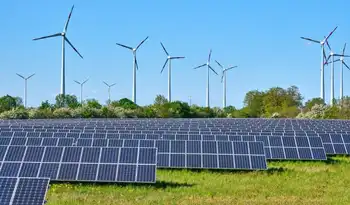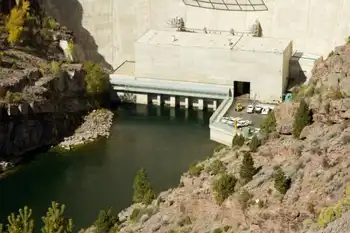Puerto Rico Tesla Solar Power enables resilient microgrids using batteries, renewable energy, and energy storage to rebuild the hurricane-damaged grid, reduce fossil fuels, cut costs, and accelerate recovery with scalable solar-plus-storage solutions.
Key Points
A solar-plus-storage plan using Tesla microgrids and batteries to restore Puerto Rico's cleaner, resilient power.
✅ Microgrids cut diesel reliance and harden critical facilities.
✅ Batteries stabilize the grid and shave peak demand costs.
✅ Scalable solar enables faster, modular disaster recovery.
Puerto Rico’s governor Ricardo Rossello has said that he will speak to Elon Musk after the Tesla inventor said his innovative solar and battery systems could be used to restore electricity on the island.
Mr Musk was mentioned in a tweet, referencing an article discussing ways to restore Puerto Rico’s power grid, which was knocked out by Hurricane Maria on September 20.
Restoring the ageing and already-weakened network has proved slow: as of Friday 90 per cent of the island remained without power. The island’s electricity company was declared bankrupt in July.
Mr Musk was asked: “Could @ElonMusk go in and rebuild #PuertoRico’s electricity system with independent solar & battery systems?”
The South African entrepreneur replied: “The Tesla team has done this for many smaller islands around the world, but there is no scalability limit, so it can be done for Puerto Rico too.
“Such a decision would be in the hands of the PR govt, PUC, any commercial stakeholders and, most importantly, the people of PR.”
His suggestion was seized upon by Mr Rossello, who then tweeted: “@ElonMusk Let's talk. Do you want to show the world the power and scalability of your #TeslaTechnologies?
“PR could be that flagship project.”
Mr Musk replied that he was happy to talk.
Restoring power to the battered island is a priority for the government, and improving grid resilience remains critical, with hospitals still running on generators and the 3.5 million people struggling with a lack of refrigeration or air conditioning.
Radios broadcast messages advising people how to keep their insulin cool, and doctors are concerned about people not being able to access dialysis.
And, with its power grid wiped out, the Caribbean island could totally rethink the way it meets its energy needs, drawing on examples like a resilient school microgrid built locally.
“This is an opportunity to completely transform the way electricity is generated in Puerto Rico and the federal government should support this,” said Judith Enck, the former administrator for the region with the environmental protection agency.
“They need a clean energy renewables plan and not spending hurricane money propping up the old fossil fuel infrastructure.”
Forty-seven per cent of Puerto Rico’s power needs were met by burning oil last year - a very expensive and outdated method of electricity generation. For the US as a whole, petroleum accounted for just 0.3 per cent of all electricity generated in 2016 even as the grid isn’t yet running on 100% renewable energy nationwide.
The majority of the rest of Puerto Rico’s energy came courtesy of coal and natural gas, with renewables, which later faced pandemic-related setbacks, accounting for only two per cent of electricity generation.
“In that time of extreme petroleum prices, the utility was borrowing money and buying oil in order to keep those plants operating,” said Luis Martinez, a lawyer at natural resources defense council and former special aide to the president of Puerto Rico’s environmental quality board.
“That precipitated the bankruptcy that followed. It was in pretty poor shape before the storm. Once the storm got there, it finished the job.”
But Mr Martinez told the website Earther that it might be difficult to secure the financing for rebuilding Puerto Rico with renewables from FEMA (Federal Emergency Management Agency) funds.
“A lot of distribution lines were on wood poles,” he said.
“Concrete would make them more resistant to winds, but that would potentially not be authorized under the use of FEMA funds.
"We’re looking into if some of those requirements can be waived so rebuilding can be more resilient.”
Related News












